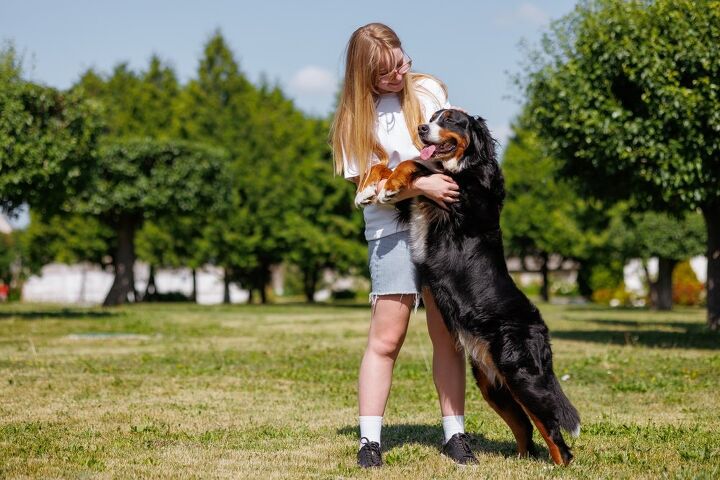Off-leash dog parks offer a tempting playground for our furry friends to socialize and burn energy, especially if they live in a single dog home. However, not all dogs are suited for this environment.From reactive dogs triggered by the presence of dogs they’ve never met before to dogs that simply lack the etiquette to socialize with others respectfully, an off-leash dog park can quickly spiral into a dangerous and even life-threatening environment if you’re not fully prepared.In this article, we’ll outline the key factors to consider when deciding if an off-leash dog park is suitable for your dog, including their temperament, training, and your own comfort level. Let’s explore the pros and cons of off-leash parks to help you make an informed decision. What Types of Dog Parks Are Available? When people discuss dog parks, they often instantly picture a fenced open field. However, there are many different types of dog parks and exercise areas your pup may enjoy. A basic dog park is exactly as I just described. They are often found in urban areas where dogs may lack yards and other spaces to run around. Usually, these open spaces contain picnic tables for the dog parents who are also visiting to relax. Some dog parks, recognizing the added risks smaller dogs face when their larger counterparts run around the space, have created two separate penned spaces – one for small dogs and one for large dogs. Doggy playgrounds are dog parks that incorporate agility and other fun play elements for dogs to explore and experience. Some examples include teeter-totters, tunnels, playhouses, platforms, and more. These dog parks may also offer a selection of dog toys to enjoy during your visit. Finally, dog beaches perfectly combine an open dog park space and a beach/swimming spot. These are sometimes fenced off, but not always. Dog beaches may be off-leash, on-leash, or a combination of the two with designated sides depending on your dog’s (and your) comfort level. Most dog beaches aren’t fenced, but some will offer this added security feature, with fences leading up to and even extending slightly into the water. What are the Pros of Dog Parks? With so many dog parents getting excited each time a new dog park is announced, it’s safe to assume that these public pet-friendly spaces offer some benefits for us and our pups. Here are the pros you can look forward to when visiting your local off-leash dog park or exercise area: Socialization Opportunity One of the most popular reasons dog parents cite for using dog parks is the ability to socialize their dogs with other dogs and people. When walking our dogs down the street or through the local municipal park, we don’t often know which dogs or people are “dog-friendly,” leading most dog parents to steer clear of anyone else who may use the space. However, when you enter a dog park, the expectation is that everyone within that set boundary is open to interacting with one another. Chance to Meet New Dog ParentsOur dogs aren’t the only ones who struggle at times to meet dog-friendly friends. As dog parents, we all know the challenge of explaining to our non-dog-parent friends why we would prefer to include our dogs in everything we do. If you don’t share your heart and home with a dog, you don’t understand just how special that bond can be. When we walk into a dog park, we know that any people we interact with during our visit are there for the same purpose—to give their dogs the best possible experience. This allows us to meet and connect with other dog parents, which can lead to doggy play dates and other get-togethers. Enrichment and Exercise Our dogs need exercise and mental stimulation to lead happy, healthy lives. While this can be provided at home with the help of snuffle mats, interactive dog toys, puzzle feeders, and other activities, there is something to be said about the joy dogs feel when running with their canine friends. If you have a high-energy dog, this is a good opportunity to encourage them to run, play, and wear themselves out without requiring you to run alongside them. Training Opportunity Are you looking for opportunities to train your dog to interact safely and respectfully with other pups? This can be challenging if you have only one dog at home. However, when you walk into a dog park, your dog will only encounter other dog-friendly dogs (one assumes, more on that later). This is a great time to show them how to interact appropriately without fearing that coming on too strong could trigger a dog fight with a dog-selective or reactive pup. This is also an excellent opportunity to train your dog to interact with people appropriately. People who walk into a dog park are usually dog lovers, so you don’t have to worry about your dog walking up to someone who is afraid of dogs. While this doesn’t negate the need to keep your dog from jumping all over someone without permission, it is a good spot to address your concerns and train your dog on interacting respectfully. Introduction to New experiencesDog parks also offer a safe space for your dog to discover and interact with new experiences. Dog parents may arrive with items that may otherwise trigger your dog – like bicycles, wagons, strollers, children, or people of different ages and ethnicities. Allowing your dog to experience all these people and items in a safe space is a great way to set them up for success as you head out into other areas of the world. For example, if your dog learns that a stroller isn’t “scary” when seeing one regularly coming into their favorite dog park, they are less likely to react to one when walking down the street. Safe from Many Outside Risks We all want to keep our dogs safe when they are playing. Unfortunately, this can be challenging if we don’t have the benefit of a fenced yard for them to run and play. When your dog is playing in a fenced dog park, you can rest assured that you don’t have to worry about outside dangers like your dog being stuck by a car. This alone is reason enough for many dog owners to familiarize themselves with the dog parks at home and in the destinations they are traveling to.
























